The Gone Sounds of Jazz with Sid Gribetz
An archive of jazz radio programs focused on intensive in-depth looks at great themes from jazz history. Winner of the Jazz Journalist Association Award for Career Excellence, Sid has been broadcasting for over 40 years on WKCR-FM, NYC. He was also voted ’Best Jazz DJ’ by the Village Voice in its 2008 Best Of NY Issue.
Episodes
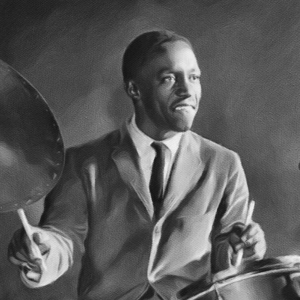
Wednesday Dec 04, 2024
Art Blakey 1958-1964
Wednesday Dec 04, 2024
Wednesday Dec 04, 2024
Sid Gribetz features Art Blakey’s Jazz Messengers “From Moanin’ To Kyoto”.
Art Blakey is the dynamic drummer and band leader who nurtured many young jazz stars and inculcated the “hard bop” sound in the groups he organized over the many decades of his career until his death in 1990.
Even in a five hour program, we will have time to focus only on a limited aspect of Blakey’s prolific career. Thus, we’ve chosen to explore a period of golden flowering of the ensemble, starting with the arrival in 1958 of Benny Golson. Golson organized matters and brought fellow Philadelphians Lee Morgan, Bobby Timmons and Jymie Merritt into the fold; instilled their repertoire with his sophisticated compositions (and Timmons’s, too); and thereby took the Messengers to the “next level”.
In the fall of 1958, the group recorded its seminal Blue Note album “Moanin’” and then embarked on an extended European tour which put it on a broader map.
Golson would soon leave, eventually to be replaced in the tenor saxophone chair by Wayne Shorter. Shorter and Morgan, with their crackling and crisp virtuosity as soloists, and lyrical song writing and ensemble playing, set another high bar for the Jazz Messengers style.
Morgan would depart in 1961 to be replaced by Freddie Hubbard; trombonist Curtis Fuller would be added to make the group a sextet; and Cedar Walton would come on board to take the piano bench. All would contribute their original compositions to the band’s “book”, songs that are now part of the established modern jazz repertory. Additionally, the Jazz Messenger sound turned on their innovative arrangements and creative solos that infused popular standards with fresh, new meaning.
Blakey toured Japan to an ecstatic response in January 1961, and returned frequently thereafter. From these trips, he assimilated a Japanese flavor into songs such as Ugetsu, On The Ginza, and Kyoto adding to the scope of the presentation.
Thus, I’m entitling the show “From Moanin’ to Kyoto”, as the program will feature classic recordings of Blakey’s Jazz Messengers in this fertile period – late 1958 through 1964 (when “Kyoto”, the last of their Riverside albums, was made).
originally broadcast February 18, 2018
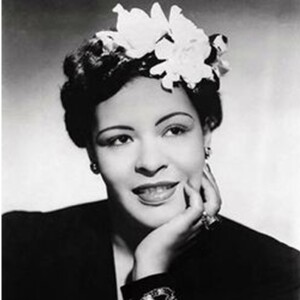
Sunday Nov 17, 2024
Billie Holiday 2
Sunday Nov 17, 2024
Sunday Nov 17, 2024
During the 2019 Billie Holiday WKCR Birthday Broadcast, I put together a segment of an erstaz sampling of live performances, some famous, some obscure, including, among others, Count Basie, Stan Getz, A Yiddishe Momma, and The Sound Of Jazz TV broadcast. A nice listen....
88 minutes
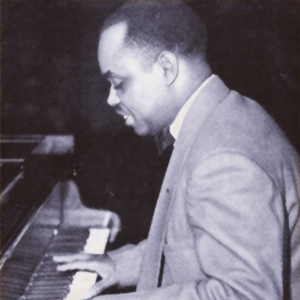
Friday Nov 15, 2024
Sammy Price
Friday Nov 15, 2024
Friday Nov 15, 2024
Born in Texas October 6, 1908, Sammy Price began his career as an entertainer on the black vaudeville TOBA circuit as a dancer and singer as well as pianist. He then became a fixture as a pianist in the Southwestern swing and blues jazz scene in Kansas City and its territories in the burgeoning years of jazz in the 1930s.Price moved to New York City in 1938, working for over a decade as the house pianist and musical arranger for Decca Records, appearing on countless classic blues and gospel recordings, ranging from Trixie Smith to Blue Lu Barker to Sister Rosetta Tharpe. Sam also had a chance to present his own jazz groups, including greats such as Sidney Bechet and Lester Young. Additionally, Price brought his brand of boogie woogie and swing piano to the Café Society and similar venues. In the 1950's, Price worked with mainstream jazz groups and in rhythm and blues, and later had a regular partnership with trumpeter Henry “Red” Allen.In the heady 1960's, Price stepped back from his musical activities for a time, becoming a youth counselor and what we today would call a “community organizer”, a leading figure in the Harlem community with organizations such as HARYOU-ACT. With the 1970's revival for classic jazz, Price reinvigorated his music, christened as the “King Of Boogie Woogie”, and he performed regularly at New York clubs such as the Cookery, Crawdaddy, and the West End. He also frequently toured Europe, both as a rollicking solo pianist, or in small combos with old friends. Sammy Price died in 1992 at the age of 83.
originally broadcast October 2009
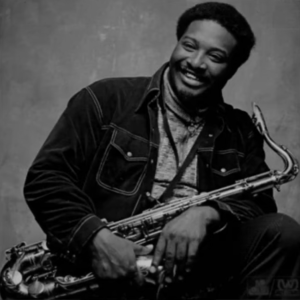
Tuesday Nov 05, 2024
Houston Person
Tuesday Nov 05, 2024
Tuesday Nov 05, 2024
In jazz history, Houston Person is one the great purveyors of the deep throated tenor saxophone sound --dynamically powerful and swinging, but also sultry, bluesy, sensitive and romantic. Houston Person was born on November 10, 1934 in Florence, South Carolina. He was musically inclined as a child, and then studied at South Carolina State University. After college, Person entered the service and was stationed in West Germany for several years in an Air Force unit that included Cedar Walton, Lex Humphries, and Eddie Harris, among other jazz musicians who became lifelong friends and influences.Upon discharge from the service, Person returned stateside for further studies in graduate school at the prestigious Hartt Institute in Connecticut. Person finally began making his way in the professional jazz world in the Boston/New England area. By the early 1960's he had established his mark and began recording for Prestige Records. Person’s style also fit into the soulful jazz of the period and graces many live bands and recordings in that groove.By the 1970's, Houston met up with the awe-inspiring vocalist Etta Jones, and after some occasional collaborations they started a steady working partnership that lasted until Etta’s death from cancer in 2001. Their musical and personal teamwork and connection was so intense that they were often mistaken as a married couple, and feted as a continued legacy of the Lester Young and Billie Holiday collaboration.Person has a masterful and encyclopedic command of the American popular songbook. He conveys the meanings of these songs, and also the blues, and jazz standards, in a straightforward manner that engages the audience with a direct emotional connection. This style marked his work with Etta, and even more so his continued regular performances with his own combos, or as a guest artist in demand with countless groups.
originally broadcast October 27, 2024
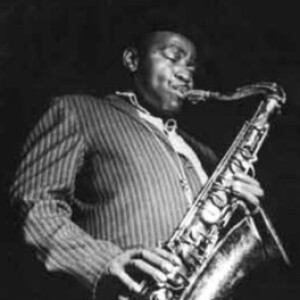
Sunday Nov 03, 2024
Ike Quebec
Sunday Nov 03, 2024
Sunday Nov 03, 2024
Ike Quebec was a deep-toned, dynamic saxophonist, instrumental in both the swing styles and the modern jazz era.
Born in Newark, NJ in 1918, Quebec began his artistic career in show business as a dancer, and then a pianist, but during the World War II years he came of age as a saxophonist. Quebec’s early roots were in the swing styles, both as a key member of Cab Calloway’s big band in the 1940's, and as a soloist in small group swing and blues combos. Notably, Ike participated in some seminal Blue Note recording sessions in the early years of the label. Additionally, his artistry was informed by his presence on the Harlem scene during the formative years of modern jazz.
In the late 1950's Quebec emerged as an important figure in the jazz business, serving as a talent scout, A & R man, and confidant for Alfred Lion and the Blue Note company during its modern jazz heyday. Starting in 1959, Quebec also recorded for the label himself, presenting classic sessions in organ grooves, hard bop, and bossa nova settings, all characterized by a rich harmonic sophistication and a driving, full-throated, yet graceful saxophone style.
Unfortunately, Quebec succumbed to the disease of lung cancer and died at the early age of 44 in 1963.
originally broadcast in 2015
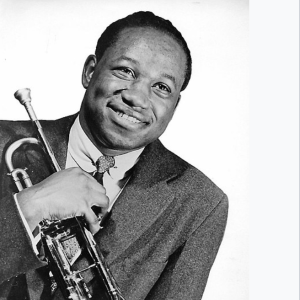
Friday Nov 01, 2024
Clifford Brown 1
Friday Nov 01, 2024
Friday Nov 01, 2024
WKCR presents an annual marathon 24 hour tribute to trumpet virtuoso Clifford Brown on October 30, his birthday anniversary.
Here is my segment from the 2024 edition. It begins with a half hour potpourri of Brown recordings. That's followed by a detailed survey of Clifford's first commercial jazz records in 1953, when he flowered on the scene in sessions with Lou Donaldson and Elmo Hope; J.J. Johnson; Tadd Dameron; and his first date as a leader for Blue Note in August. Finally, the survey includes material from the famous February 21, 1954 live recording at Birdland with Art Blakey.
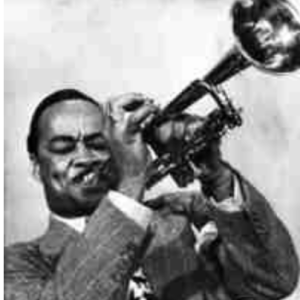
Friday Nov 01, 2024
Buck Clayton
Friday Nov 01, 2024
Friday Nov 01, 2024
Buck Clayton was a leading trumpeter and arranger of the swing era.
Coming of age in the Southwestern Jazz Styles, Clayton moved to Los Angeles as a young man and made his name in the California Jazz circles. In 1934, he assembled a band that moved to Shanghai, China, and brought American Jazz to the Orient. Escaping Shanghai just before the Japanese invasion, Clayton returned to the US and landed in Kansas City, where he joined the nascent Count Basie orchestra. Clayton served as the lead trumpet soloist (and arranger) in the classic original Count Basie band, and also joined Billie Holiday for her great early recordings.
Drafted during World War II, Clayton did not serve overseas, but was stationed on army bases in New Jersey. From that perch, he participated in the NY 52nd Street scene and was a major part of the small group swing bands. In the 1950's and 1960's, he toured the US and France with Jazz At The Philharmonic and others, and made key recordings of "Mainstream Jazz".
Although physical lip troubles curtailed his trumpet playing, Buck continued his career as a composer and arranger, until his death on 1991.
This program was originally aired on May 22, 2011. It celebrated Buck's centennial that year, as he was born November 12, 1911 in Parsons, Kansas.
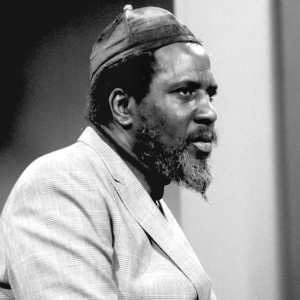
Wednesday Oct 16, 2024
Thelonious Monk 2
Wednesday Oct 16, 2024
Wednesday Oct 16, 2024
WKCR presents annual marathon broadcasts to celebrate the October 10 birthday anniversary of Thelonious Monk.
Here's my segment form the 2024 edition. It begins with selections from Monk's appearances as a "sideman" on sessions with Clark Terry, Art Blakey & The Jazz Messengers, and Sonny Rollins. Next is a lengthy survey of Monk's recordings for the Blue Note label from 1947-1952, his first record contract and an opportunity to proudly display the initial conceptions of his now legendary original compositions.
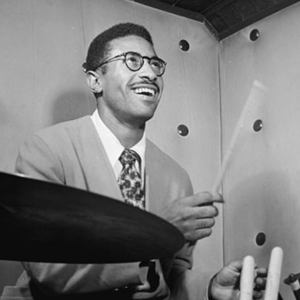
Wednesday Oct 16, 2024
Max Roach 1
Wednesday Oct 16, 2024
Wednesday Oct 16, 2024
WKCR presents a marathon broadcast celebrating Max Roach annually, on his birthday anniversary, January 10.
Here's my segment from the 2022 program. The major portion of this episode samples recordings from Debut Records, the independent label owned by Roach and Charles Mingus, and includes material ranging from some esoteric ensembles to the legendary Massey Hall Concert.
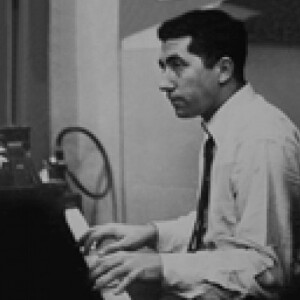
Wednesday Oct 09, 2024
George Wallington
Wednesday Oct 09, 2024
Wednesday Oct 09, 2024
George Wallington was one of the legendary pianists of the bebop era but never achieved great fame. With his early retirement from a musical career, he remains a more obscure figure in jazz history and lore. However, he was an especially swinging pianist and inventive composer who deserves continued attention.
Born Giacinto Figlia in Sicily in 1924 (some sources date his birth a little earlier) his family moved to New York when he was an infant, and his father was an opera singer who exposed him to classical music. But when George heard Lester Young and the Count Basie orchestra as a young teen, he was smitten with the expressive and emotional power of jazz. He started playing professionally in New York nightclubs as a youth, using the stage name Wallington (taken from a nickname) and befriended fellow teen musicians such as Max Roach.
Wallington was hired by Dizzy Gillespie to play (along with Roach and Oscar Pettiford) in his innovative early bebop band at the Onyx Club in late 1943 and 1944, a seminal event in jazz history. Thereafter, Wallington became a figure on the 52nd Street scene along with Bird, Diz, Miles Davis and all the audacious young jazz musicians of the time. His tunes “Lemon Drop” and “Godchild” became famous bebop anthems popularized in recordings by others.
After appearing as a sideman on several records by the likes of Gerry Mulligan, Kai Winding, and Al Cohn, by 1949 Wallington began recording as leader. These albums, especially piano trios playing both his cerebral original compositions and swinging treatments of the American popular song, accompanied by greats such as Roach, Charles Mingus and Curly Russell, remain stunning to listen to and serve as testaments of his musical stature.
Wallington was in the famous Lionel Hampton band of young turks that toured Europe in 1953. Later in the 1950's he led jazz combos on the New York scene, including working groups with Jackie McLean, Paul Chambers and Art Taylor, and notably a long running popular band that featured the horns of Donald Byrd and Phil Woods.
But it was at this point that he left music and started a successful air conditioning business with his brother (Figlia & Sons). Wallington returned to jazz for occasional brief appearances at concerts in the 1980's, and he passed away in 1993.
originally broadcast January 15, 2017

